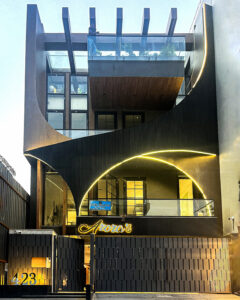Why Your Factory Needs a Customized Industrial RO Plant?
Introduction
Water quality and availability are critical to industrial operations, yet factories face unique challenges—fluctuating demand, complex contaminants, and spatial limitations. While standard reverse osmosis (RO) systems offer a generic solution, they often fall short in addressing these nuanced needs. A customized RO plant, on the other hand, is engineered to tackle specific operational hurdles, delivering optimal performance, cost savings, and sustainability. In this blog, we’ll explore why tailored solutions outperform one-size-fits-all systems and how they can transform your facility’s water management.
👉 Explore Our Industrial RO Plants
Why Standard RO Systems Fall Short
Standard RO systems are designed with a “one-size-fits-all” approach, which may work for simple applications but fails to meet the demands of industrial settings. Below are some key reasons why these systems struggle to deliver in industrial environments:
Fixed Capacity, Variable Demand
- Inflexible output: Standard systems are built for average flow rates, leading to inefficiencies during peak demand or underutilization during low production cycles.
- Example: A factory requiring 10,000 liters/day may strain an 8,000-liter system or waste resources with a 15,000-liter unit. This mismatch not only affects productivity but also increases operational costs unnecessarily.
Ineffective Contaminant Removal
- Generic filtration: Off-the-shelf systems lack targeted treatment for industry-specific pollutants like heavy metals (textiles), pathogens (food processing), or high total dissolved solids (TDS) (power plants).
- Consequences: Poor water quality leads to frequent membrane fouling, increased downtime, and potential regulatory non-compliance. For instance, untreated heavy metals in automotive manufacturing can damage machinery and compromise product quality.
Higher Operational Costs
- Energy waste: Mismatched systems consume excess power, driving up utility bills. This inefficiency becomes particularly problematic in energy-intensive industries like power generation.
- Maintenance burden: Frequent part replacements inflate long-term costs, making standard systems less economical over time. Additionally, poor adaptability often results in unplanned downtime, further impacting profitability.
Space Constraints
- Retrofitting challenges: Pre-built systems often don’t align with existing layouts, escalating installation expenses and complicating integration. Factories with limited floor space may find it nearly impossible to accommodate bulky standard systems without significant modifications.
The Advantages of Custom RO Plants
A custom RO plant is designed to address the specific needs of your facility, ensuring maximum efficiency and reliability. Here’s how customization makes a difference:
Precision Engineering for Water Quality
- Custom pretreatment: Tailored solutions address specific contaminants, such as activated carbon for chlorine removal in food processing or anti-scalants for hard water in textiles. This ensures that the RO membranes operate at peak efficiency and last longer.
- Example: Pharmaceutical plants achieve USP-grade purity with multi-stage filtration, while automotive factories eliminate heavy metals using specialized membranes. These targeted treatments ensure compliance with industry standards and protect sensitive equipment.
Scalability for Dynamic Needs
- Modular design: Expand capacity incrementally as production scales, avoiding costly overhauls. This flexibility allows businesses to adapt to changing market demands without significant upfront investments.
- Flexibility: Adjust output based on seasonal demand fluctuations, ensuring consistent performance. For example, beverage manufacturers can ramp up production during peak seasons without worrying about water shortages.
Energy Efficiency
- Smart components: High-efficiency pumps, variable frequency drives (VFDs), and low-energy membranes reduce power consumption by up to 25%, lowering operational costs. Energy-efficient designs also contribute to sustainability goals, reducing the facility’s carbon footprint.
Space Optimization
- Compact configurations: Systems are tailored to fit constrained spaces, minimizing retrofitting needs and simplifying installation. This is especially beneficial for urban facilities or those with limited expansion options.
Industries That Benefit Most from Custom RO Solutions
Different industries have unique water treatment requirements. Custom RO plants cater to these needs effectively:
- Pharmaceuticals: Ultra-pure water for sterile manufacturing processes.
- Food & Beverage: Microbial and chemical contaminant removal to meet compliance standards.
- Textiles: Treating high-TDS wastewater to prevent dyeing defects and ensure consistent product quality.
- Power Generation: Purifying boiler feedwater to prevent scaling and extend equipment life.
- Automotive: Filtering heavy metals from process water to protect machinery and ensure safety.
Key Features of an Effective Custom RO System
An effective custom RO system incorporates advanced features to ensure reliability and performance:
- Advanced Pretreatment: Tailored to remove industry-specific impurities, ensuring optimal membrane performance.
- Automated Monitoring: IoT-enabled sensors provide real-time performance tracking, enabling proactive maintenance and reducing downtime.
- Durable Materials: Corrosion-resistant components (e.g., FRP vessels, stainless steel) ensure longevity and reliability, even in harsh industrial environments.
- Regulatory Compliance: Meets ISO and industry-specific standards, ensuring peace of mind and avoiding penalties.
Is a Custom RO Plant Right for Your Facility?
To determine whether your facility could benefit from a custom RO plant, consider the following questions:
- Does your water source contain unique contaminants (e.g., high TDS, heavy metals)?
- Are you experiencing frequent membrane replacements or system downtime?
- Do space constraints limit your ability to use standard systems effectively?
- Is your water demand variable or projected to grow in the future?
Conclusion
While standard RO systems may seem convenient, they rarely deliver the efficiency, cost savings, or adaptability required for industrial applications. A custom RO plant addresses your facility’s unique challenges, ensuring reliable water quality, reduced operational costs, and future scalability. By investing in tailored solutions, industries can achieve sustainable water management and focus on their core operations without compromise. For factories seeking reliable industrial water treatment solutions , it’s important to work with experienced professionals who understand these nuances. To better understand how tailored RO systems can address your facility’s specific needs, you can learn more about our expertise and approach. Additionally, this article explores why investing in a customized industrial RO plant is essential for modern factories aiming to optimize performance and sustainability
For more insights on industrial solutions, visit FreshVoiceHub and check out my profile here.










